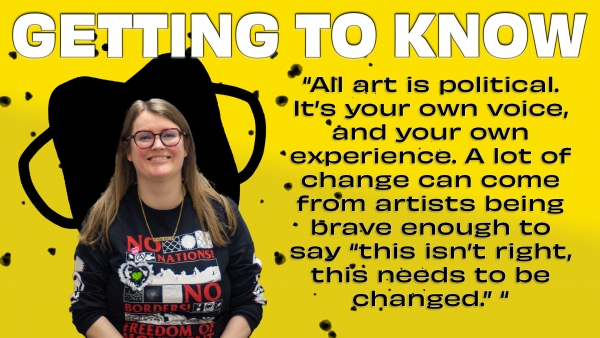
Getting to Know Laura Grainger, ceramicist
Posted on: 22 Feb 2024Bristol is jam-packed with artists - so it's high time we spoke to another! This week we sat down with potter and ceramicist Laura Grainger, to speak about clay, their poli-tea-cal mugs, and what it's like being a student of the School of the Damned.
Can you give us a brief introduction to yourself and your work?
My name’s Laura Grainger, and I’m a ceramic artist living in Bristol, but I’m from Yorkshire originally. I’ve lived in Bristol for maybe ten-or-so years, eight of which I’ve been doing ceramics. I started ceramics as kind of a bit of an apology to my father, who’s an artist. We had lots of ceramics around the house, and my brothers and I used to run around and smash his things. I felt so awful, I thought “I’m going to start ceramics, so I can make something nice for my dad.”
I was doing ceramics classes at the Folk House, hand-building and beginning to use the pottery wheel. I did that for about three years and I was living in Redfield when I saw that an artist I follow, David Chilton, saying “Oh, we’re setting up this ceramics studio in Redfield” and they were looking for resident artists. I was like “Oh my god, I don’t think I’m a resident artist…”
But I applied, and I got a space there from 2019-2022. Clayshed, is what that place is called. It’s where I went from being a hobbyist, just kind of messing around, to beginning to hone my own ideas. That’s where the politea-cal mugs were born.
I think Bristol’s a good influence, it’s quite arty and also quite interested in social dynamics. It’s definitely seeped into my ceramics – it’s my way of getting my angers out. I work in healthcare, and that influences and inspires my work. My recent series of 18th century pharmaceutical jars ' An Ode to the NHS' explores my personal opinions on general lack of funding and staffing, and my desire for the NHS to long continue and flourish.
Ceramics is that for me – it’s how I get the frustrations out. Then I can continue doing a good job and helping everyone be healthy, and happy and hopefully seeing well.
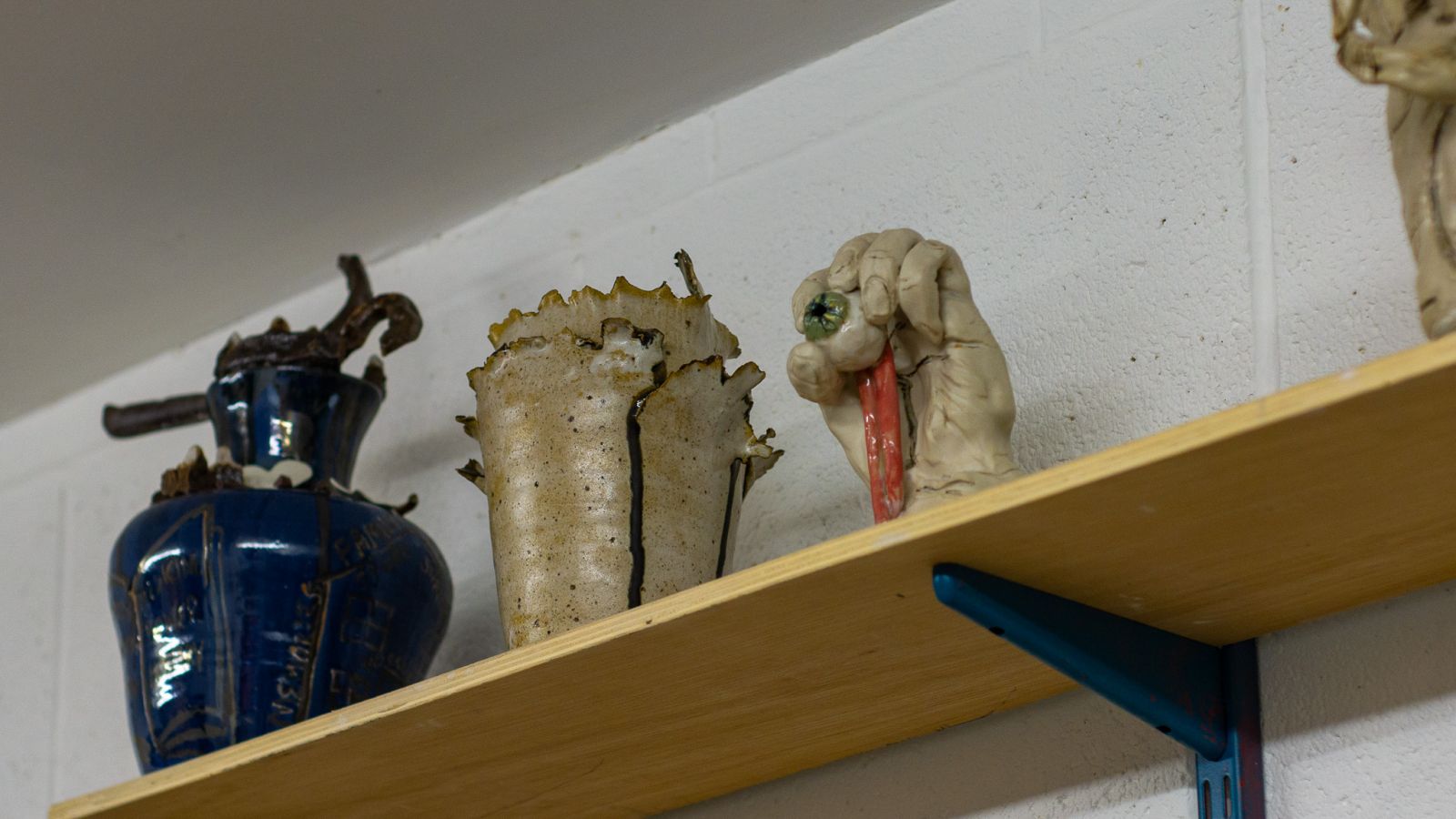
Is Clayshed still in operation?
Yeah, Clayshed is still in operation. They have a host of smaller spaces that you can rent, and a big studio with materials, glazes, kilns for hire. It’s a really great place if you’re starting ceramics and you’re needing the support. It’s run by Steve, Louise and Alice – without them I wouldn’t have had any clue on how to load a kiln, or fire a kiln safely.
People think it’s just clay, but there’s quite a lot of materials that are really dangerous – there’s this thing, “potter’s lung” from breathing in the dust, so it’s about trying to keep everywhere clear of the dust so you’re not breathing it in. You’ve also got something that goes up to 1260 degrees, that’s currently in my house – and you’re thinking “I’ve got to make sure that doesn’t melt down.”
For me, it was a great grounding place to learn the skills that I needed – you go to classes and learn how to work with a material, and you begin to understand that there’s endless possibilities.
She’s a bit of a devil, this ceramics business, she’s a bit cruel at times – so you get used to the disappointment that’s involved with a craft. You’ve got your kiln, and hope that it comes out fairly like you want it to – hence I’ve got my two little kiln gods just up there. We give them a little “come on, kiln gods!” Although, I was reading somewhere that we shouldn’t pray to the kiln gods, we should be good enough scientists – because there is a lot of science and chemistry involved in the glaze-making and things like that – that we should know how it’s going to come out. But, I’m maybe not there yet.
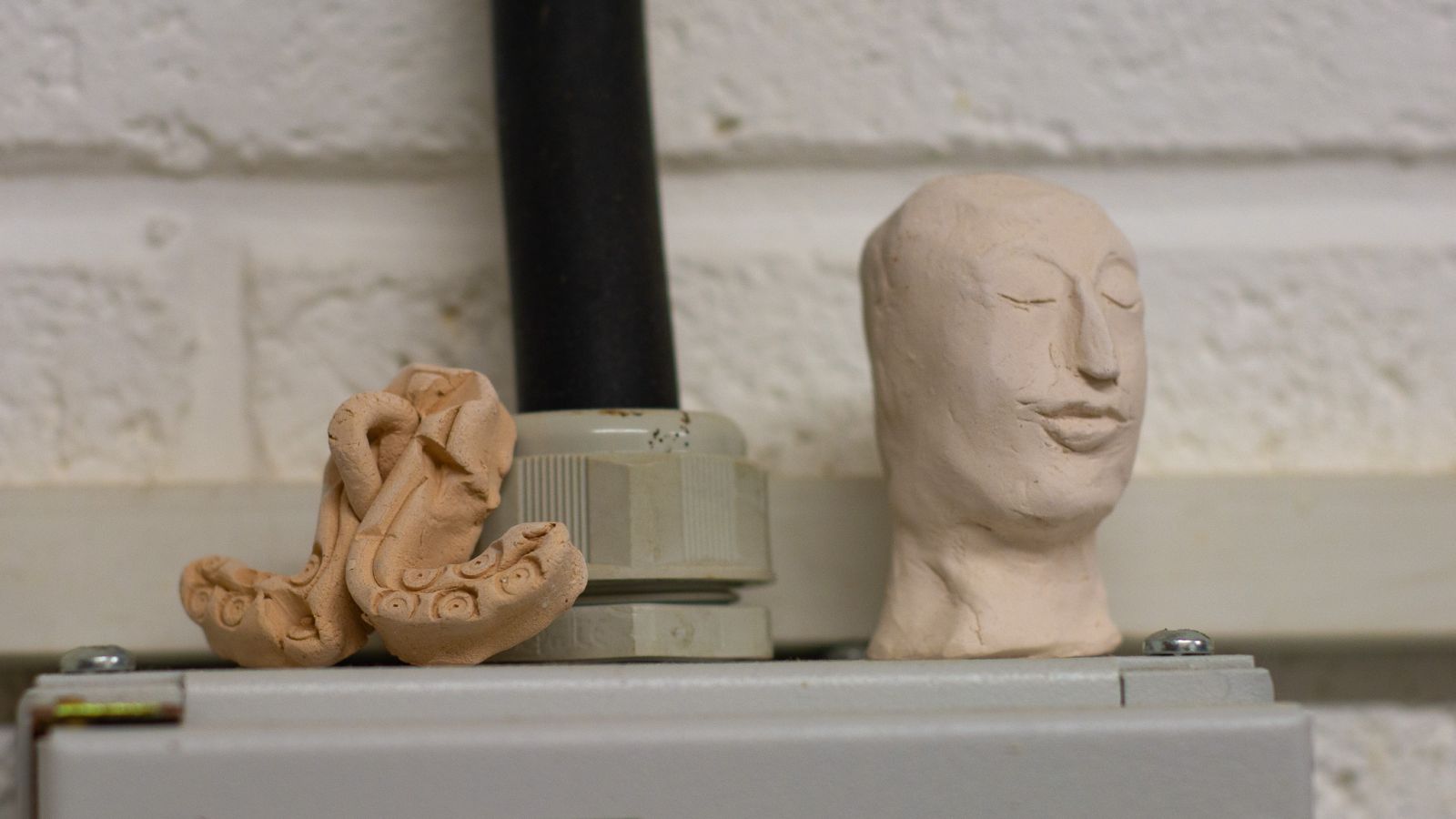
Do you think that unpredictability is where a lot of the joy comes from, though?
Yeah, absolutely. I think every time you open a kiln, it’s like Christmas. It’s it going to be a disappointing Christmas or is it going to be a really joyful one?!
There’s definitely that unpredictability, especially when you’re doing things like wild clays, wild glazes, and the testing involved in that – or alternative firings, like the Lyde Green pottery crew run by Phil Root. I’ve been really following him for some time, he’s an interesting potter based in Bristol, and he’s set up this wood-firing kiln.
I did a Raku course in Devon about two years ago – that’s really exciting because you’re firing with gas and getting the temperatures up to 1000 degrees, then you open the kiln. You almost feel like your face is being burned off as you’re trying not to lean over to get your pots out, and using all the combustibles to get these exciting surface decorations.
Your work is very left-wing and political – is there something inherently subversive about pottery?
I am very influenced by the works of people like Grayson Perry, using that subversive sense of bringing pottery into being an art form, and using it as a platform for being truth to power and power to truth – or what I feel is the truth. There’s a term, craftivism, using the craft as an activism platform.
It’s difficult at the moment, because The Arts Council England recently brought out their statement saying they’re not going to be supporting any artist that is seen to be political, and I was like: “well that’s me screwed.”
I mean, all art is political. It’s your own voice, and your own experience. It’s made me feel like somebody out there is trying to gag our voice, and our influence. A lot of change can come from artists being brave enough to say “this isn’t right, this needs to be changed.”
Being reminded not to wear lanyards during demonstrations as an act of "political neutrality" made me feel personally angry, as I want to show my support for doctors during the fair pay strikes. Being seen to have no political opinion, is in my view, an act of agreeing with the current political system, and I think we can do better.
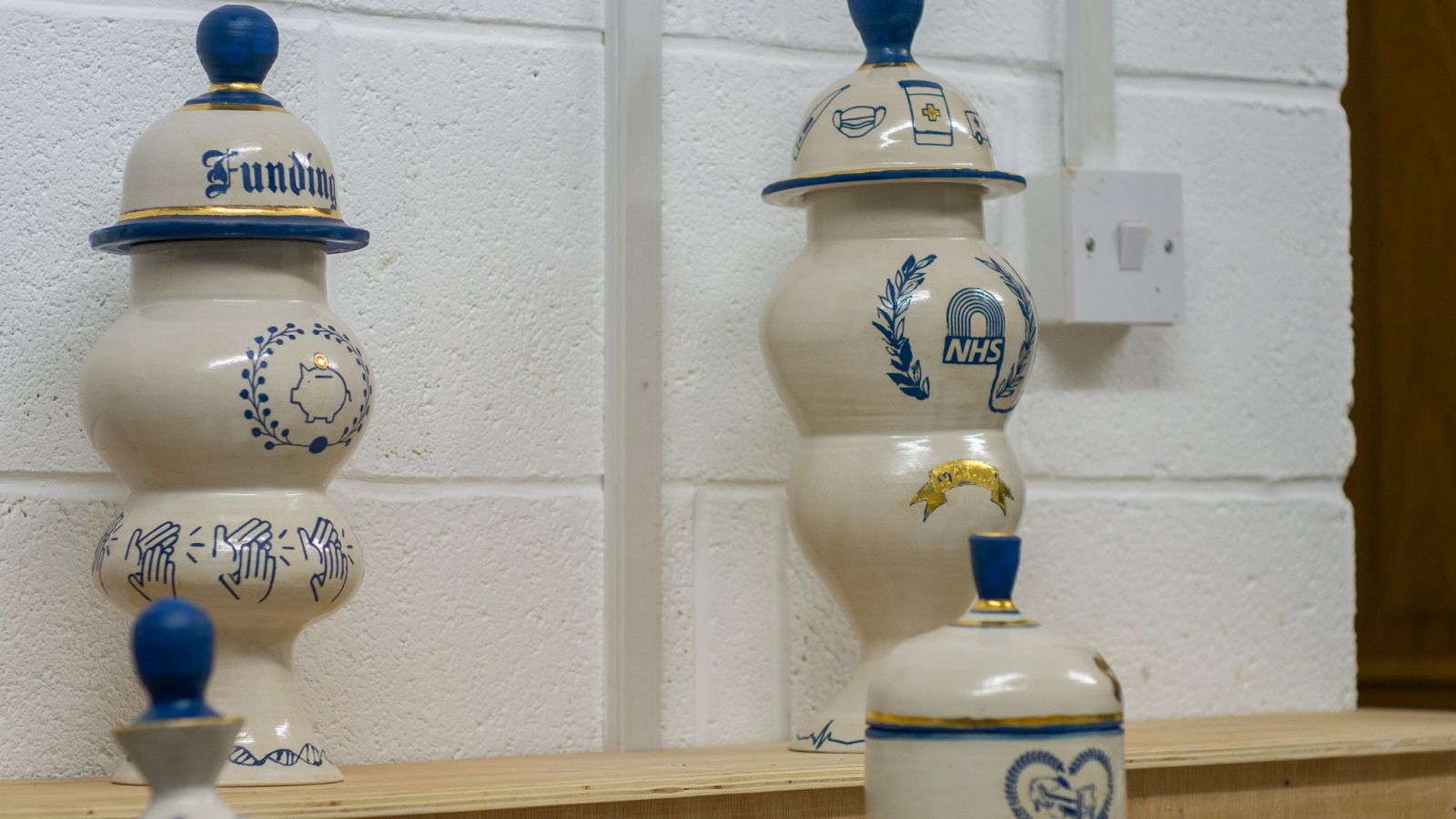
You’re a student of the School of the Damned – could you tell us what your take on the School is, and what it’s like to be a student there?
It’s an alternative to an MA, run by the peers, who are chosen by the previous cohort, and it’s up to you what you want to do for that year that you are the students.
It was set up originally in 2014, as a reaction to the cost of education at the moment, which should be for everybody, but actually there’s barriers where people can’t afford to go to university: that was why it was initially set up.
It’s all peer-run, so we decide our own syllabus, we self organise whatever we’re wanting to do, whether that’s talks, exhibitions...We try to work with other alternative arts groups, and inviting in artists to give us talks. We’re organising our own education, and how we want that to be.
We try to work where there’s no hierarchy, no leadership. I think in previous years, the initial ones were about ten students, then it went up to about thirty students in 2019, then when it came across to our group, because they were trying to make it so it wasn’t ‘chosen people’, they said “let’s let everyone in who applied” – so there ended up being a hundred of us.
It’s a non-hierarchical school, it’s trying to question how art education is, and try to make it more accessible. So they made it more accessible, but in some ways made it less accessible for us. We had to try and make sure everyone’s voice is heard. We were set into four different groups of 25, and we were like: “Nope! They’ve given us a structure – let’s get rid of it!”
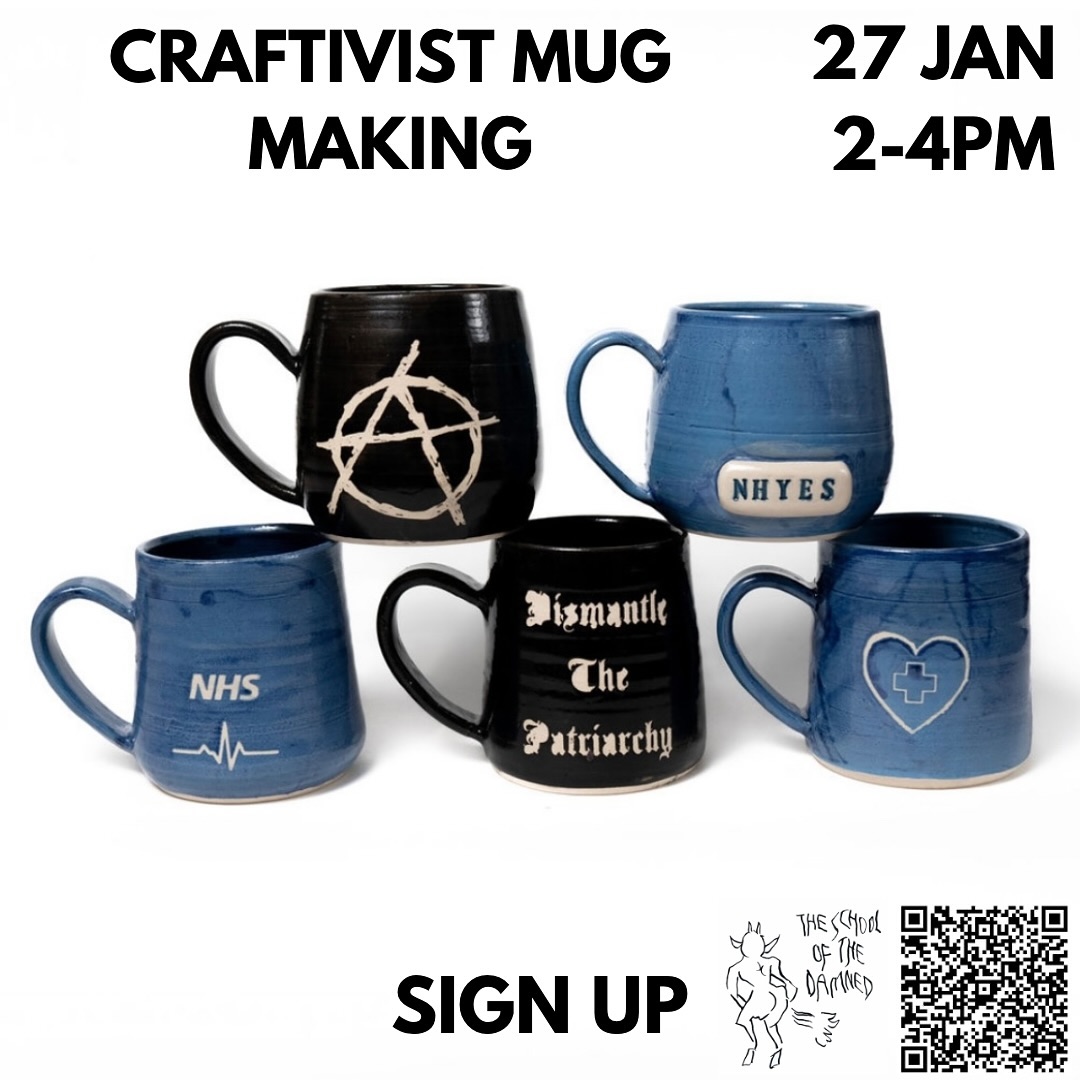
We finally figured that out, I think it’s whittled down to about 60 students now, mostly all over the UK. There was a gentleman in China, and somebody in Berlin, although I think they’ve kind of petered off…
There’s a contingency up in Scotland, so they’ve been doing their own thing – but we’re hoping to do an event up in Glasgow in June. We did something with Set Studios in Sheffield, and in Woolwich. There’s quite a lot of students up around London, and there is this idea of trying to decentralise art from London, but I would question whether that actually happens, a little bit – there is quite a London-centric group.
For me, I’ve got an optometry degree, but I’ve always had this creative side – thinking that I’d love to go back and do an MA, but thinking I can’t afford it, because I’m now at the stage where I’ve got a house and can’t afford to do education and pay a mortgage. It’s been amazing that I’ve had that opportunity, that I don’t have a BA, and they encourage people to join from different backgrounds.
I’ve learned so much this last year: I had the opportunity to self-organise a show, leading rather than just helping someone else. I’ve learned loads – it’s been quite tiring, but a great bunch of people.
I suppose the other interesting thing about School of the Damned, is we work on a cashless system. We work on labour exchange, hence to hire the recent St Anne’s space, we put on three workshops; I did a three-hour mug-making workshop. It meant we saved thousands of pounds on what it would have been to hire that space over the weekend. I was super grateful that Bricks at St.Anne’s House were willing to work on that labour exchange programme, because we wouldn’t have been able to achieve it otherwise.
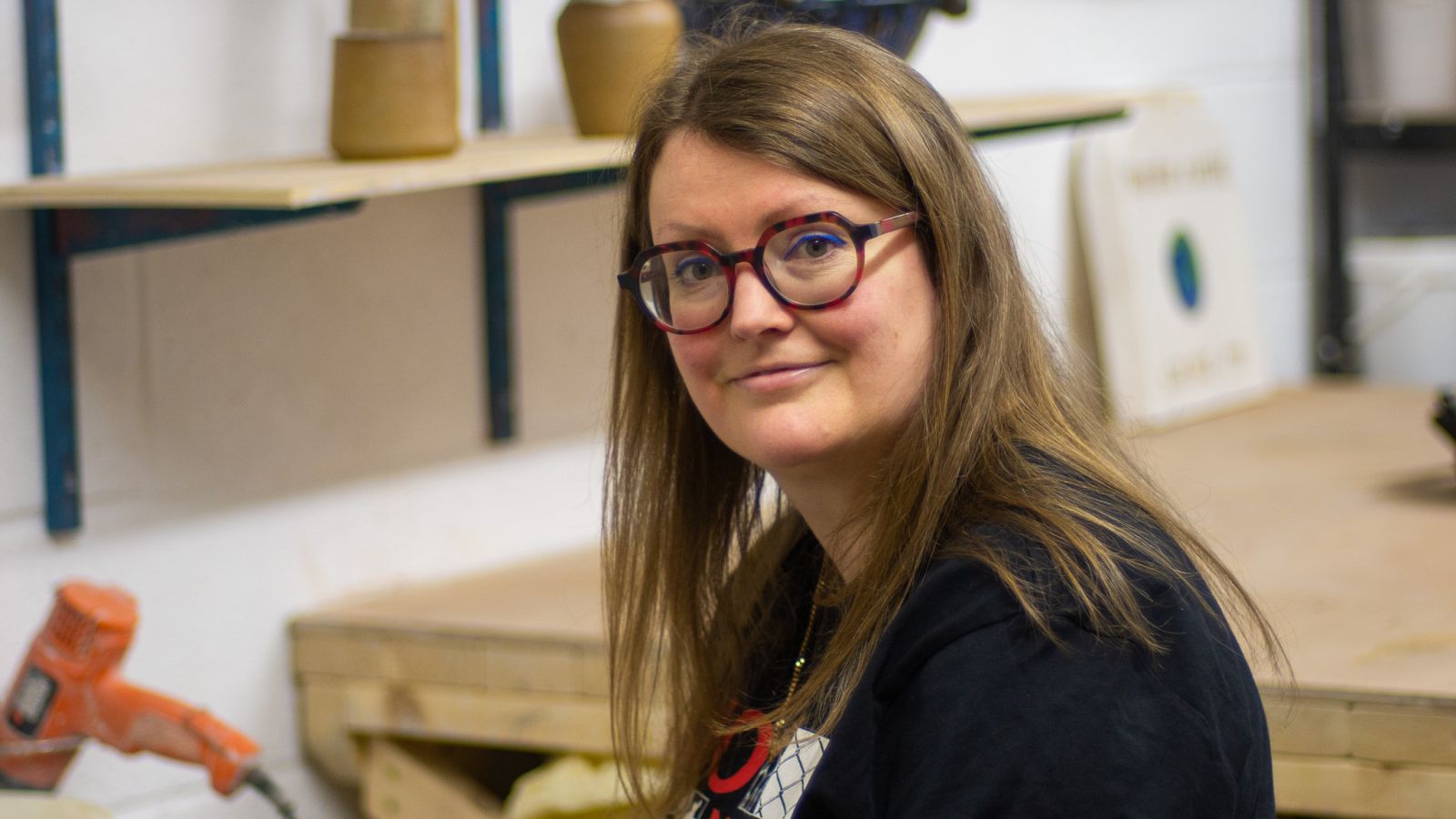
If you were Mayor of Bristol for the day, what would you do?
The thing I would love to see more of in Bristol is support for the homeless. So, COVID: they managed to put everybody up in a hotel, but when there’s no COVID it’s: “oh, we couldn’t possibly provide support for the people that need it.”
So, I’d sort out accommodation, sort out therapy – sort out everything that’s going to help get people back into society.
A worthy cause! Thanks, Laura.
You can find Laura's work on their website. Clayshed is here, and check out the School of the Damned here.
Read more:
-
Arts: Circomedia are hosting a Spring Gala to celebrate 30 years of thrilling circus
-
What's on: Just 10 weeks until one of the world’s biggest shows opens at The Bristol Hippodrome
Article by:

Patrick is a filmmaker with so much Bristol in his blood the white blood cells are graffiti'd. Educated at the Northern Film School in Leeds, he’s returned home to be a Videographer and Reviewer for 365Bristol and BARBI. When he’s not messing about with cameras, he enjoys playing guitar, spending far too much time on tabletop RPGs, and being an awful snob about cider. Have a look at his work here, or get in touch at patrickb@365bristol.com.

